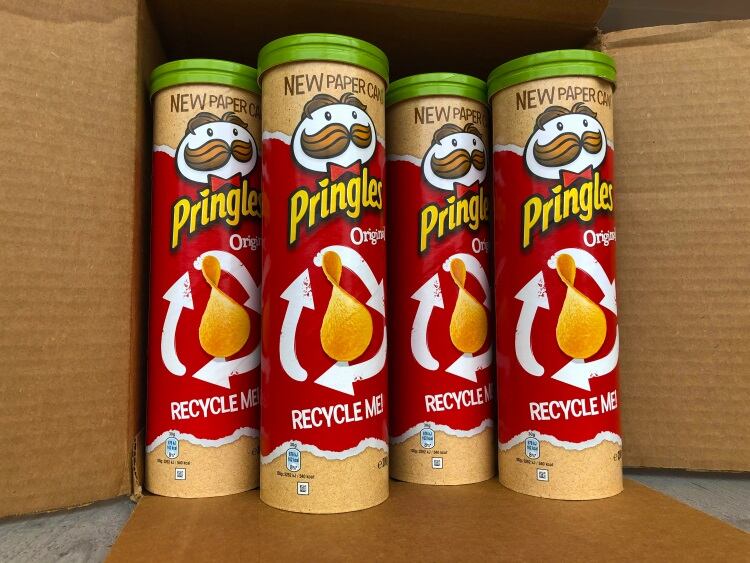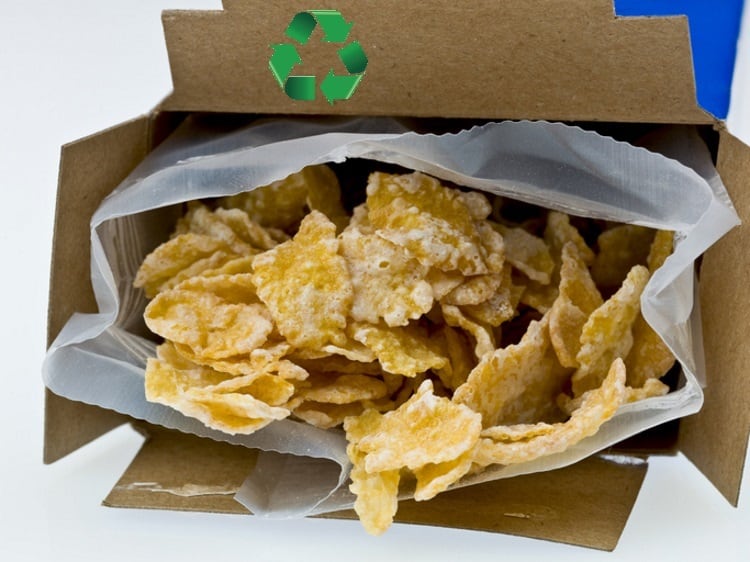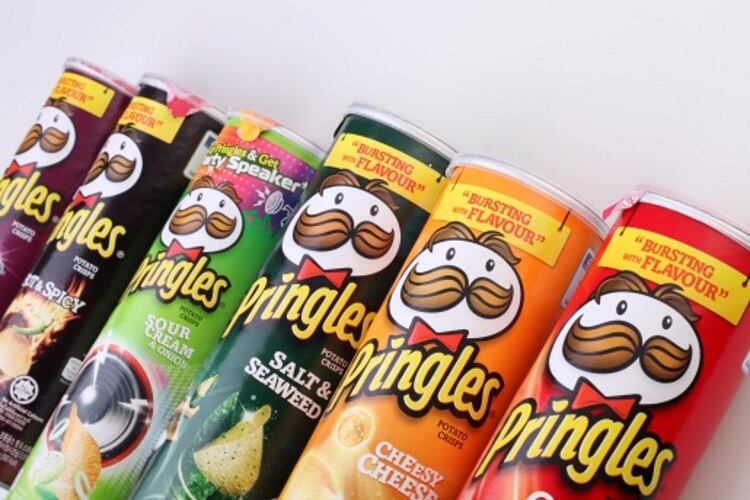The move is part of the breakfast cereal and snacks giant’s company-wide commitment to transform to 100% reusable, recyclable or compostable packaging by 2025.
Launched in partnership with Tesco, the pilot is taking place in three of the grocer’s outlets across East Anglia from September 9, 2020 for six weeks for the Pringles 200g Original variant.
Paper or steel?
The recycled paper pilot follows a similar trial of a recyclable steel can in Italy at the end of last year.
A Kellogg’s UK spokesperson told BakeryandSnacks, “We’re still in the testing phase in our journey of designing the Pringles can of the future.
“As a global brand, we will be assessing the results of our packaging trials in [both] Italy and the UK soon to understand which formats could work best.”
Finding the can of the future
The iconic tube – invented by organic chemist and food storage technician Fredric John Baur – has been a defining feature of Pringles since it was launched in 1967 in the US.
However, it was branded one of the ‘villains’ of the recycling world by the UK’s Recycling Association, thanks to its use of multiple materials including a metal base, plastic cap, metal tear-off lid and foil-lined cardboard sleeve, which are difficult to recycle through an existing household recycling system.
To overcome this, Pringles partnered with TerraCycle two years ago to create a free recycling programme for all Pringles cans in the UK.
Now, after 12 months of intensive R&D, an inhouse team has created a recyclable paper tube that also protects the hyperbolic paraboloid shaped contents and maintains their crunch over a long shelf life.
The paper cans will be trialled with two different lids: a paper lid and a plastic lid, both of which can also be recycled.
Consumers input
“We are eager to play our part and reduce our impact on the planet. And, Pringles fans expect that of us too. So, we’ve worked hard to come up with this new can, which is widely recyclable and keeps our chips fresh and tasty and protects them from breaking up – which helps to reduce food waste,” said Miranda Prins, Pringles VP.
“The important thing for us now is getting the trial up and running with Tesco and collecting all the data and consumer feedback.
One-on-one surveys and high tech surveillance will be conducted to help the brand understand the reaction of shoppers – including eye tracking analysis to see how consumers visually react to the new packaging on shelf.
“At this stage it is too early to say whether we’ll roll out this new paper tube, however, the information we collect will help us understand if people like it and if it works on the supermarket shelf and at home. This trial will help us create the Pringles can of the future,” added Prins.
Aside from the packaging, the popular chip brand has also altered production to reduce its environmental impact, including using 18% less water, reducing carbon emissions by 16% and creating 16% less waste per gram of packaged product over the past decade. The product is also kinder on consumer waistlines, with 10% less salt and 12% less saturated fat in seven of its flavours available in UK stores.
Sarah Bradbury, Tesco Group quality director, added, “We are working at speed with our suppliers to remove packaging where we can, reduce what we cannot remove, to reuse more and to make sure the packaging we do use is recyclable.
“This work is achieving real change for our customers and our environment. It’s vital that all products become recyclable as quickly as possible and we’re delighted that Pringles are trialling its new tube exclusively with us; and we look forward to further progress.”





